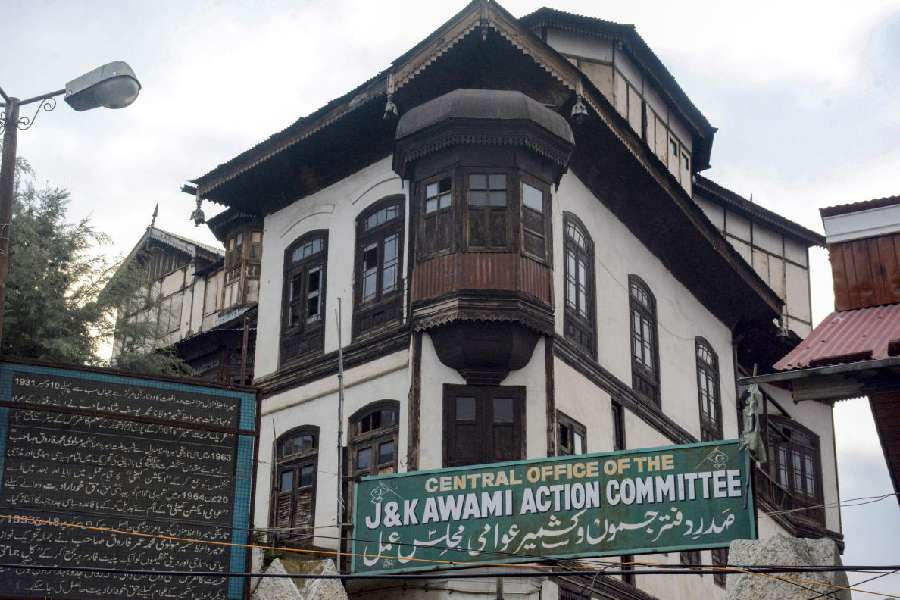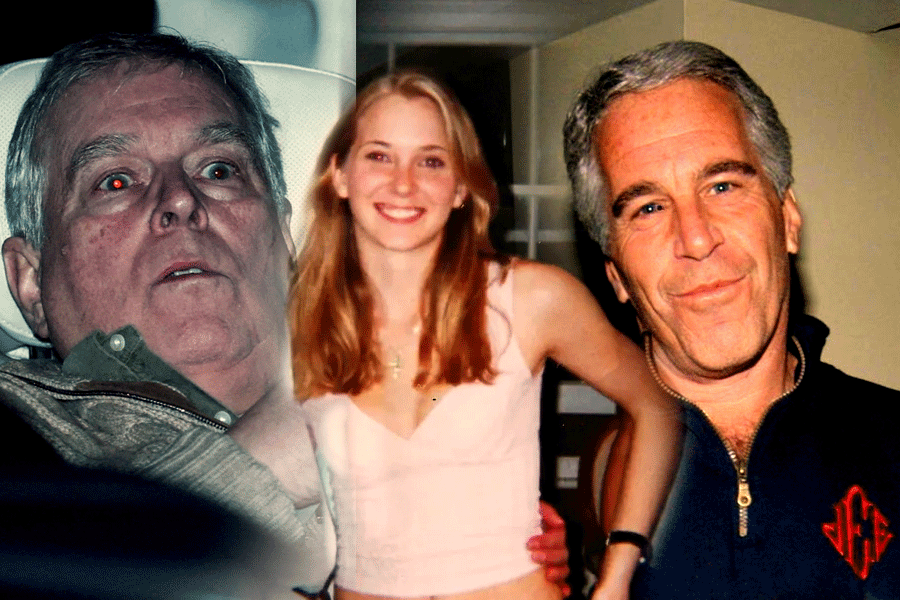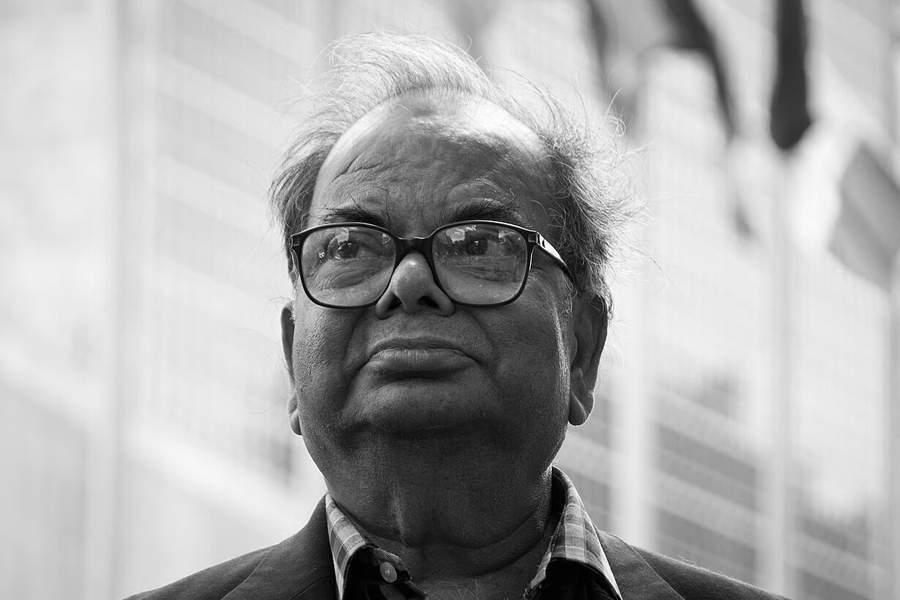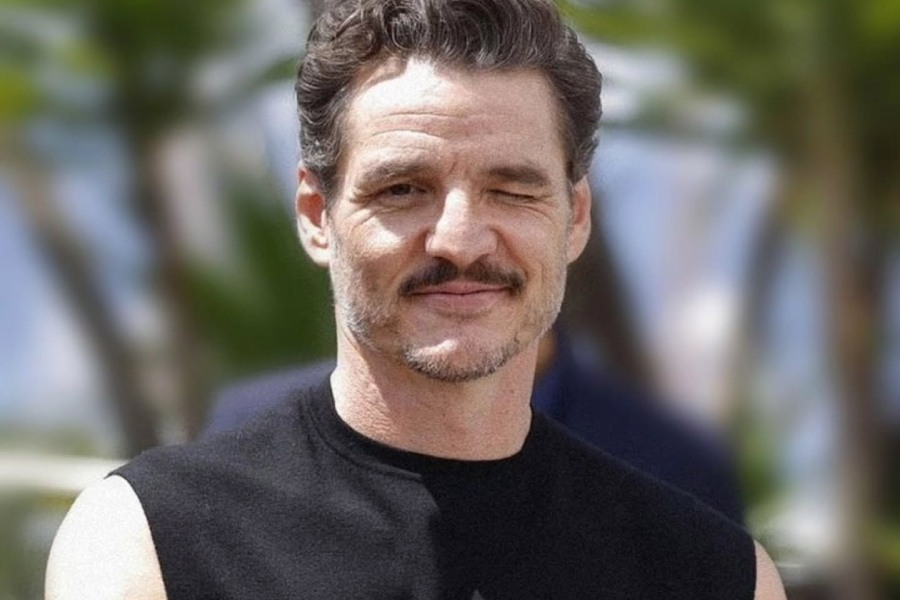Union home minister Amit Shah on Tuesday proclaimed that separatism in Kashmir was now “history” with two groups deciding to sever ties with the ideology, literally writing the obituary of the decades-old movement.
In his social media post, Shah named the Jammu and Kashmir People’s Movement (JKPM) and the Jammu and Kashmir Democratic Political Movement (JKDPM) as having cut all ties with separatism. Soon, however, he edited the post to remove the names. While the JKPM doesn’t exist any longer and was never a separatist party, the JKDPM is an insignificant organisation.
There was no clarity from the central government on which parties have renounced separatism.
"Separatism has become history in Kashmir. The unifying policies of the Modi government have tossed separatism out of J&K. Two organisations associated with the Hurriyat have announced the severing of all ties with separatism," Shah posted on X.
The home minister urged other groups to shun separatism. “I welcome this step towards strengthening Bharat’s unity and urge all such groups to come forward and shed separatism once and for all. It is a big victory for PM Shri @narendramodi Ji’s vision of building a developed, peaceful and unified Bharat,” he said.
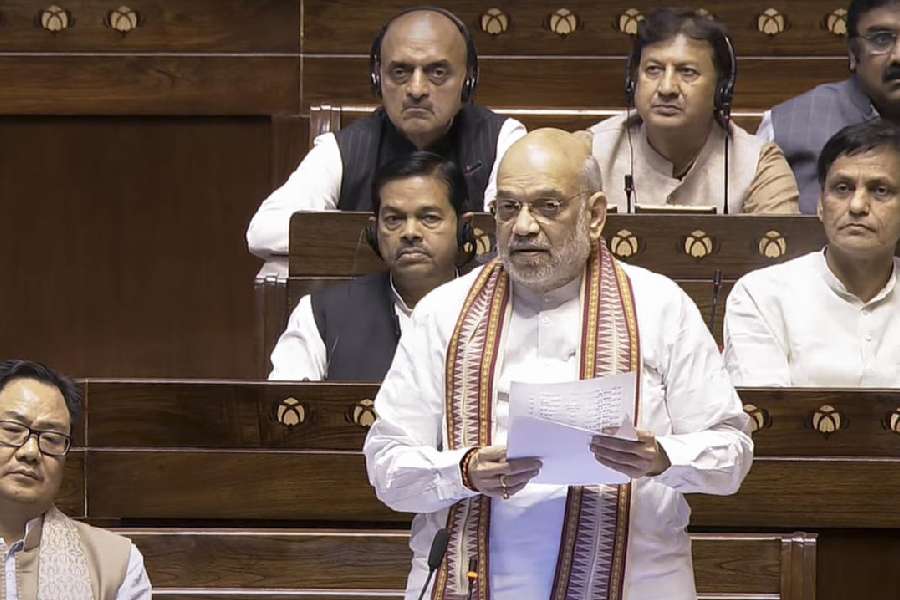
Union Home Minister Amit Shah speaks in the Rajya Sabha during the Budget session of Parliament, in New Delhi, Tuesday, March 25, 2025.
Separatist politics took a massive hit following the abrogation of Article 370 in 2019. Though not banned, both factions of the Hurriyat Conference exist only in name. Moderate Hurriyat chairman Mirwaiz Umar Farooq has of late been active but never calls himself Hurriyat chief. Most senior separatists are in jail and those who are free are lying low. Even their children face travel restrictions.
Last year, separatist leader Syed Ali Shah Geelani’s granddaughter Ruwa Shah and Jammu and Kashmir Democratic Freedom Party president Shabir Shah’s daughter Sama Shabir issued public notices in local newspapers distancing themselves from separatism and pledging loyalty to India. The move came after they faced overseas travel restrictions.
The JKPM was founded by bureaucrat-turned-politician Shah Faesal in 2019 after resigning from the civil services to contest elections. After the special status was scrapped, Faesal found himself in jail along with many other politicians. He quit politics soon after and has since been rehabilitated by the Centre. Some JKPM leaders, however, shifted to other parties.
In 2022, JKPM chairman Dr Mustafa Khan announced the outfit’s merger with the Aam Aadmi Party. “I have since shifted to the Samajwadi Party. I am its state vice-president. The JKPM does not exist any more and it was never a separatist party,” Khan told The Telegraph.
The JKDPM was headed by Mohammad Shafi Reshi, an aide of Geelani. Reshi on Monday issued a statement saying he had severed ties with the group in 2018 during his tenure “as chairman” and has “no connection with these organisations or any separatist entity since then”.
He suggested that he had made the decision in 2018 and was merely iterating it before the public now. Refusing to elaborate, Reshi said he had nothing more to say.
On Monday, Reshi had criticised the Hurriyat ideology, saying it had failed “to address the legitimate aspirations and grievances of the people of Jammu and Kashmir”. He reaffirmed his allegiance to India, declaring himself a bona fide citizen committed to the supremacy of the Constitution.
Earlier this month, the Centre banned the Mirwaiz-led Awami Action Committee (AAC), which is not associated with the Hurriyat, and the Masroor Abbas Ansari-helmed Jammu and Kashmir Ittihadul Muslimeen for five years under the anti-terror law UAPA, citing threats to national security and sovereignty.
The Mirwaiz, who spent years under house arrest following the 2019 abrogation, said it was a “continuation of the policy of intimidation and disempowerment that is being followed vis-a-vis J&K since August 2019”.
“Formed by Shaheed-e-Millat (his father Mirwaiz Mohammad Farooq who was killed by militants in 1990) at the peak of the holy relic (Moi Muqadas) agitation in 1964, it (the AAC) has unwaveringly stood by the people of J&K, advocating their aspirations and rights through completely non-violent and democratic methods and calling for peaceful resolution of the Kashmir conflict through dialogue and deliberation, for which its members suffered jails and incarceration and even martyrdom,” he had said.

